Michael Jackson
Timbaland reveals details of an upcoming Michael Jackson single and album!
Published
11 years agoon

Music producer Timbaland, in an exclusive interview with Revolt TV, has confirmed what many Michael Jackson fans already knew – he is working on a new album of the King of Pop’s unreleased music.
DJ Freestyle Steve, Timbaland’s official DJ, was the first to let slip that the producer was working on the project after tweeting that he had shown him some of the tracks.
“So last night I heard some of the new tracks Timbaland is doing for the King of Pop… WOW!” said the DJ on August 19, 2013.
“To all the Timbaland & Michael Jackson fans; just know Tim did an amazing job with Mike’s vocals. The world will love it,” he later added.
Then, in a video posted on the Revolt TV YouTube channel today, Timbaland himself confirmed the collaboration, explaining that LA Reid, chairman and CEO of Sony Music Entertainment’s Epic Records, visited him at his home before inviting him on board the project.
“LA Reid came to me like, to my house, like, ‘I got something big I wanna do … How would you feel about doing Michael Jackson?'”
Timbaland, who never had the chance to work with Jackson during his life, said “of course I’ll do it,” while acknowledging that re-producing and releasing the music of deceased artists is not an easy thing to do.
“It’s hard to bring anything out because now you’re just going to hear my music with his voice over it.”
The producer also announced the title of his preference for the project’s lead single.
“I can tell you the first single is gonna be the song ‘Chicago’ … I think it should be, because ‘Chicago’ sounds like today.”
Fans were quick to suggest that “Chicago” may actually be the mysterious unreleased track called “Chicago 1945”.
In an interview with fan site MJ Databank, Jackson’s longtime collaborative partner Matt Forger revealed that “Chicago 1945” was first written and recorded by Jackson early on in the “Bad” album sessions.
The track eventually evolved into “Al Capone”, which then became “Smooth Criminal”.
“’Chicago 1945′ was done prior to ‘Al Capone’. It spoke about an era in time, about what was happening at that time in Chicago that year. It was almost as if you were reading the newspapers at that time.”
“[Chicago 1945] was a song that Michael used as the idea for ‘Al Capone’, and ‘Al Capone’ was the idea for ‘Smooth Criminal’. So maybe there were some similarities, but this is a different song. ‘Al Capone’ was a definite new approach and ‘Smooth Criminal’ was much more refined … he wrote a story and made it unique. It was not about a historical figure like ‘Al Capone’. He made his own story and this was something new and fresh in his vision.”
As previously reported, Fred Jerkins III, who works alongside brother Rodney “Darkchild” Jerkins, recently stated that unreleased material from their sessions with the King of Pop was coming soon.
“We have a number of unreleased songs and all sorts of video footage,” stated [Fred] Jerkins.
“There’s a project in the making right now that will include all those songs. I worked with him for two years exclusively – it’s the biggest highlight of my career.”
It just so happens that a number of years ago “Chicago 1945” was listed in the discography section of the Jerkins brothers’ darkchild.com website as an unreleased track they had worked on with Jackson.
Is it possible that Jackson resurrected the track from the mid-80s and re-worked it with Fred and Rodney Jerkins nearly fifteen years later? The answer is; yes. It’s possible.
Oftentimes if Jackson felt strongly about a track he could sit on it for years, waiting for the right time to put it out – like “Blood On The Dance Floor”. In other instances Jackson might continue to tinker with a track, re-working it until he felt it was good enough for release – like “Earth Song”. And sometimes, despite continued tinkering, the song would never see the light of day.
One example of a track that was worked on for at least three successive albums, but was never released during Jackson’s life, is “Don’t Be Messin’ Round”. The track originates from the ‘Thriller’ sessions and was re-worked for both ‘Bad’ and ‘Dangerous’. Ultimately it was released posthumously, in 2012, on the 25th anniversary edition of ‘Bad’.
In fact, just last week Rodney Jerkins revealed that during the ‘Invincible’ sessions Jackson had played him a track from 1989 called “Slave To The Rhythm” – just to get his opinion.
“I remember MJ played me that song along time ago. It was originally recorded for the ‘Dangerous’ LP. He played it for me one day just to see what I thought,” said the producer.
“I like the song,” he added. “But what Michael song don’t I like? I love all his music!”
Although Jackson and Jerkins opted against working on “Slave To The Rhythm” for ‘Invincible’, it’s entirely possible that “Chicago 1945” made it to the mixing desk. And it’s entirely possible that the “Chicago” track Timbaland mentioned in his Revolt TV YouTube interview is a newly embellished version of that very track.
It’s only a matter of time before fans will know for sure one way or the other.
For anyone who isn’t aware; Revolt TV is a soon-to-be-launched cable TV channel founded by Sean “Diddy” Combs. Combs personally confirmed the authenticity of the Revolt TV interview with Timbaland, supporting his statements about the Michael Jackson project by tweeting the following:
“My bro Timbaland got something incredible coming with the KING!!! #RIPMJ“
The extracts of Timbaland speaking about the Michael Jackson project are drawn from a much longer interview in which the producer also discusses working on Jay Z’s new album. That portion of the interview was posted online back on July 3, 2013, so it’s safe to assume that the new Michael Jackson project has been in the works since June at the very least.
Click here to see Timbaland discussing the new Michael Jackson project with Revolt TV.
Damien Shields is the author of the book Michael Jackson: Songs & Stories From The Vault examining the King of Pop’s creative process, and the producer of the podcast The Genesis of Thriller which takes you inside the recording studio as Jackson and his team create the biggest selling album in music history.

You may like
-


Producer Teddy Riley Comes Clean Regarding Fake Songs From Posthumous Michael Jackson Album
-
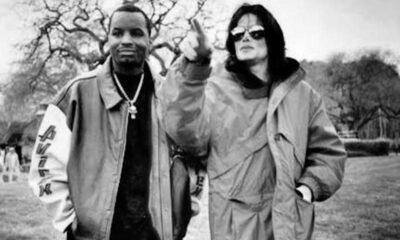

Michael Jackson Meets America in Invincible Album Outtake ‘A Place With No Name’
-
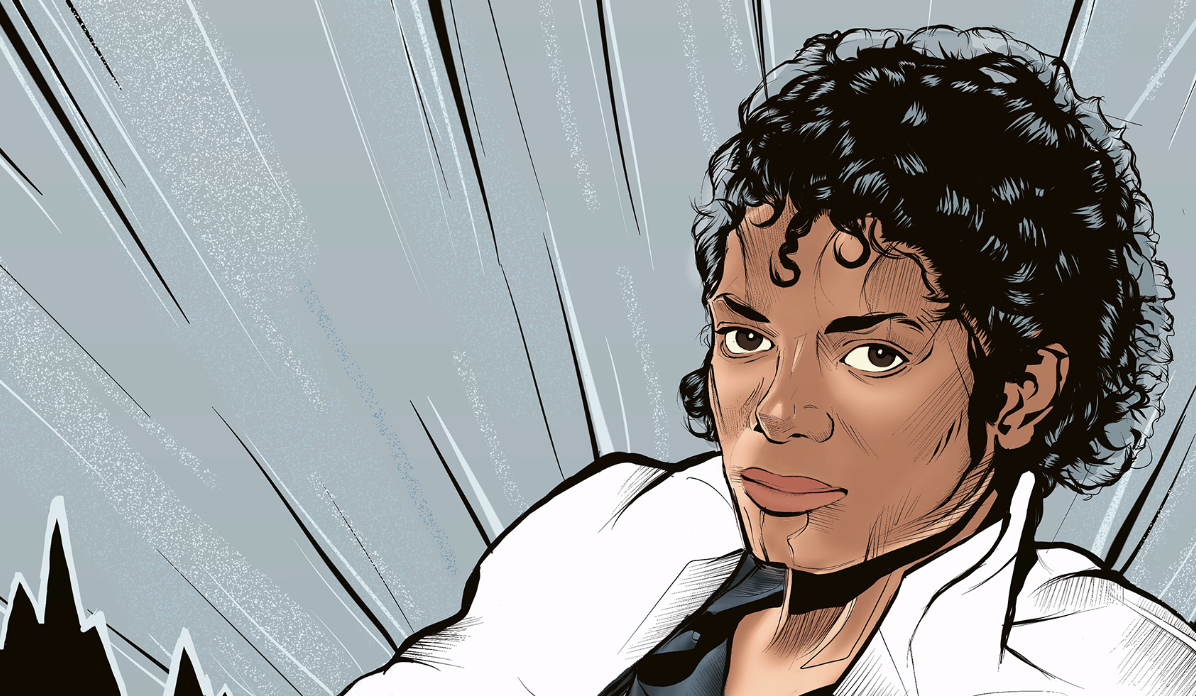

The Genesis of Thriller – A Michael Jackson Podcast Documentary
-
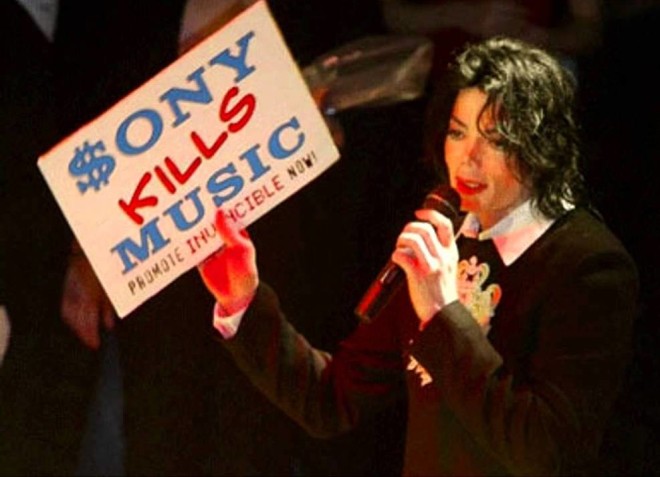

BREAKING: Court Rules Sony Music Can Sell Fake Songs Under Michael Jackson’s Name
-
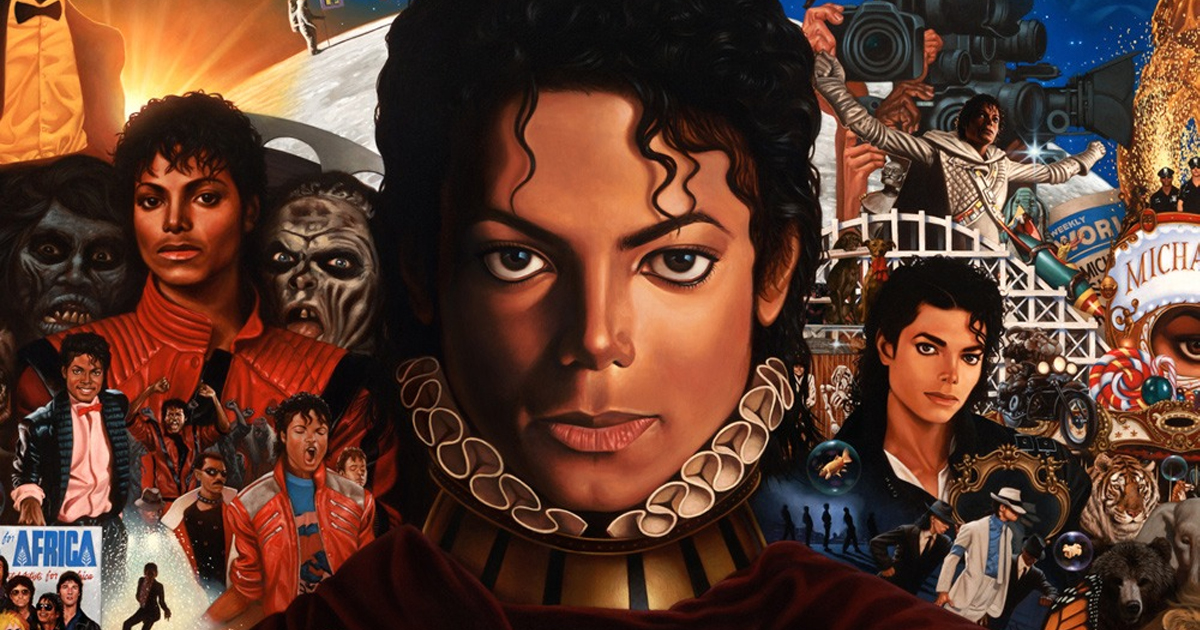

Partnership Between Sony Music and Michael Jackson’s Estate Renewed Amidst Ongoing Fraud Lawsuit
-
Auction Items Labelled as ‘Michael Jackson’ Recordings Do NOT Feature Jackson’s Voice
24 Comments
Leave a Reply
Cancel reply
Leave a Reply
Cascio Tracks
First Amendment Coalition to Support Sony and the Jackson Estate in Fake Songs Lawsuit
Published
3 years agoon
February 9, 2021
There has been yet another twist in the class action lawsuit filed by Californian consumer Vera Serova against Sony Music and the Estate of Michael Jackson regarding three allegedly fake songs commercially released on the 2010 Michael album.
In documents filed with the California Supreme Court yesterday, an organisation called The First Amendment Coalition has requested permission to file an amicus brief in support of Sony and the Estate’s purported constitutional right to sell fake songs as authentic Michael Jackson material.
FAC’s request comes after four separate amici were filed in support of plaintiff Serova by several consumer protection groups along with the California Attorney General’s Office.
All previously filed briefs support Serova’s assertion that this is a straightforward case of false advertising, and that billion-dollar corporations should not be able to commercially label fake art as authentic.
They also assert that by filing an anti-SLAPP motion against Serova, Sony and the Estate misappropriated a statute which is supposed to protect the general public against the limitless resources of wealthy corporations, and to prevent those corporations from intimidating the public into abandoning legal action against them.
Nine consumer protection organisations stated in a joint filing that Sony and the Estate have misused the anti-SLAPP statute to achieve the exact opposite of its intended purpose.
But according to documents filed yesterday, The First Amendment Coalition believes that if the Supreme Court rules in plaintiff Serova’s favour, and if a precedent is set that Sony and the Estate cannot sell fake songs as authentic Jackson material, it could have “significant implications for many different First Amendment contexts beyond the particular circumstances of this case.”
In this case, Sony asserts that they should not be held accountable for the statements made on the Michael album cover and in their television commercial, because those statements were “noncommercial” in nature. Rather, they argue, those statements are merely their contribution to the ongoing public debate about whether the vocals on three of the songs were authentic or fake, and that this makes it free speech under the First Amendment.
FAC has indicated that they will stand with Sony on this matter.
According to the mission statement published on their website, FAC is a nonprofit public interest organisation dedicated to “advancing free speech” and “public participation in civic affairs.”
By definition, public participation in civic affairs is a process in which members of society take collective action to address issues of public concern.
This begs the question: Is the definition of FAC’s mission more appropriately applied to a multi-billion dollar corporation’s purported right to claim that a commercial product is legit, when in fact it is fake? Or to a member of the public who seeks to take collective action to address the issue of that multi-billion dollar corporation falsely advertising that same product to millions of unwitting consumers?
Despite Sony and the Estate’s best efforts to stop her, the plaintiff in this case (Miss Serova) is a member of society who is attempting to take collective action (by filing a class action lawsuit) to address an issue of public concern (that a corporation may be defrauding consumers).
Moreover, FAC’s mission statement also claims to advocate for a “more open and accountable government” and “the people’s right to know”.
It should be noted that the Californian government is in fact advocating for openness and accountability and for the public’s right to know in this case – on behalf of the plaintiff, against the billion-dollar corporation that has conceded in its legal arguments to have ripped her off.
For the purposes of this proceeding, defendants Sony and the Estate have stipulated that the songs in question are indeed fake. And while their exact arguments aren’t due to be filed with the court until March 10, 2021, in the context of the defendants’ concessions, FAC could, in theory, be perceived to be advocating in favour of fraudulent representation of forged art, rather than for openness and accountability and the people’s right to know.
In a press release issued on January 29, 2021, the California Attorney General said:
“Products must deliver on their claims. If someone buys an album from a recording artist, they should expect that the songs on the album were made by that artist unless noted otherwise… We must hold companies accountable to stand by their products. Companies have a First Amendment right to communicate, but their claims must be informed and accurate.”
More to come when FAC files their amicus brief.
A podcast series called Faking Michael is in the works, detailing a decade-long investigation of this case. You can subscribe to Faking Michael on Apple Podcasts, Spotify and YouTube.
Damien Shields is the author of the book Michael Jackson: Songs & Stories From The Vault examining the King of Pop’s creative process, and the producer of the podcast The Genesis of Thriller which takes you inside the recording studio as Jackson and his team create the biggest selling album in music history.

Cascio Tracks
Californian Government Joins Fraud Lawsuit Against Sony Music and Jackson Estate
Published
3 years agoon
January 30, 2021
The California state government has officially joined a class action lawsuit against Michael Jackson’s estate and record company.
In a press release issued yesterday, the state’s Attorney General, Xavier Becerra, accuses Sony of “shirking responsibility” for making “false and misleading claims” about a posthumously released Michael Jackson album, and then declaring ignorance of their misrepresentation.
The Attorney General also filed an amicus brief with the California Supreme Court, urging them to intervene in the case of Serova vs Sony Music Entertainment, et al., for fear that “broad, destabilising consequences for well-established false advertising principles,” could be felt if it did not take action and rectify a problematic Appeals Court decision in the case.
The lawsuit at the centre of the amicus brief was filed almost 7 years ago. The suit alleges that Sony Music and the Jackson Estate misled consumers when they commercially released the Michael album, comprising 10 tracks, in December 2010.
The plaintiff in the case, Vera Serova, insists that three of the 10 tracks on Michael are part of an elaborate artistic fraud masterminded by co-defendants Eddie Cascio and James Porte, who sold the tracks to Jackson’s Estate for millions of dollars after the superstar’s death.
Serova alleges that those three tracks, known as the Cascio tracks, are fakes sung by an impostor. And she’s not alone.
Months before the album was released, members of the Jackson family warned Sony and the Estate regarding the Cascio tracks, insisting that they were fakes and should not be released. One of the Estate’s co-executors, John McClain, agreed with the Jackson family.
In response, Sony issued a press release stating that they had “complete confidence in the results of their extensive research” that the vocals were authentic. The company then released the album, including three Cascio tracks, against the family’s wishes.
Sony even went as far as to explicitly inscribe on the album cover that the vocals on all the album’s tracks were “performed by Michael Jackson.”
But despite Sony’s repeated assurances that the vocals were legit, when Jackson’s fans got their hands on the album and heard the Cascio tracks for themselves, a huge controversy ensued. Thousands upon thousands of fans around the world instantly rejected them as fakes.
Ironically, this very controversy – which Sony itself created by releasing the Cascio tracks – is one of the many points the company has since tried to raise as a get-out-of-jail-free card.
Sony says that because thousands of people were questioning the authenticity of the vocals, the company’s claim that Jackson sang them was not commercial in nature, but merely their non-commercial contribution to the ongoing authenticity debate.
But the Attorney General argues that Sony’s logic is absurd. The fact that there were questions over the vocals, the AG says, only increased Sony’s need be sure that the songs were indeed authentic if they intended on claiming they were:
“Questions about the authenticity of songs allegedly recorded by Michael Jackson shortly before his death naturally led to significant interest and debate among fans, members of the media, and the public more generally. That level of interest made it all the more important for Sony to provide accurate information about the songs to consumers.”
The AG added: “It would seriously frustrate the State’s interest in combating false or misleading advertising to immunise a seller from liability merely because its claims bear some relation to a matter of public interest or a public figure.”
Moreover, the Attorney General completely rejects Sony’s claims that their speech wasn’t commercial in nature.
Because the album cover explicitly stated that the songs were “performed by Michael Jackson,” Sony was bound to that statement as being the truth, and could be held liable under consumer protection laws if it were proven otherwise.
“A seller’s description of a product on a label or in an advertisement is a classic form of commercial speech. Thus, assuming Serova’s allegations are true, application of California’s false advertising statutes fully comports with the First Amendment.”
In the press release issued yesterday to alert the media of the California state government’s support of Serova’s lawsuit, Attorney General Becerra said:
“Products must deliver on their claims. If someone buys an album from a recording artist, they should expect that the songs on the album were made by that artist unless noted otherwise… We must hold companies accountable to stand by their products. Companies have a First Amendment right to communicate, but their claims must be informed and accurate.”
Sometime in mid-February the Los Angeles City Attorney’s Office is due to join the California Attorney General and the nine other consumer protection groups already supporting Serova’s case. No amicus brief has been filed in support of Sony or the Jackson Estate.
A date for the oral hearing of these briefs is yet to be set.
A podcast series called Faking Michael is in the works, detailing a decade-long investigation of this case. You can subscribe to Faking Michael on Apple Podcasts, Spotify and YouTube.
Damien Shields is the author of the book Michael Jackson: Songs & Stories From The Vault examining the King of Pop’s creative process, and the producer of the podcast The Genesis of Thriller which takes you inside the recording studio as Jackson and his team create the biggest selling album in music history.

Cascio Tracks
Fake Michael Jackson Songs Lawsuit Boosted by Support from Consumer Protection Groups
Published
4 years agoon
December 14, 2020
A legal quest for justice over a posthumous Michael Jackson album including 3 allegedly-fake songs has received a serendipitous boost on the 10th anniversary of the album’s release.
On Friday, December 11, 2020, the Berkeley Center for Consumer Law and Economic Justice filed an amicus curiae brief with the California Supreme Court in support of plaintiff Vera Serova’s ongoing class action consumer fraud lawsuit against Sony Music and the Estate of Michael Jackson.
The powerfully-worded brief was co-signed by 8 additional consumer protection organisations. Click here to read it in full.
Serova’s lawsuit, filed in 2014, alleges that Sony and the Estate misled her and millions of consumers when they commercially released the Michael album on December 14, 2010 – exactly ten years ago today.
The lawsuit alleges that three songs on the album are forgeries sung by an impostor vocalist, and that Sony and the Estate falsely advertised those songs to consumers as authentic Jackson material.
The three songs at the centre of the lawsuit – Breaking News, Monster and Keep Your Head Up – were originally co-written and produced by Eddie Cascio and James Porte, who are co-defendants in the fraud component of the case.
The consumer protection organisations wrote in their joint filing on Friday that Serova’s is a “straightforward case of deceptive advertising.”
Yet the case has been in legal limbo for more than four years.
Back in 2016, Sony and the Estate filed an anti-SLAPP motion against Serova, claiming that her lawsuit was a ‘strategic lawsuit against public participation’ (SLAPP) intended to deny the billion-dollar corporations their purported constitutional right to sell fake songs as authentic Jackson material.
For the purposes of their legal arguments, Sony and the Estate conceded that Jackson was not the singer of the three songs in question. To be clear, this was not an outright admission that Jackson was not singing – after 6 years in court, that issue hasn’t even been addressed yet.
Rather, their concession was made in order to prevent Serova from presenting evidence that the songs are fakes. Under normal circumstances, Serova would have been required to demonstrate that her case wasn’t a shakedown, and that she could substantiate her claims with supporting evidence.
But Sony and the Estate said that it didn’t matter if they were fake, arguing that the law allows them to lie to consumers regardless.
Their argument centres around their assertion that the statements made as part of the album’s promotional material – including on the album cover and in a TV commercial – are not commercial in nature. Yes, they’re arguing that the speech in a commercial isn’t commercial speech.
“If we ripped people off and it’s noncommercial speech, they lose under the statutes,” said Sony lawyer Zia Modabber in court. “That is just the law.”
In August 2018, the corporations succeeded in their bid to be dismissed from the case. Serova fought back, petitioning the California Supreme Court to intervene, which they did. But when the case was sent back to the Appeals Court in January 2020, Sony and the Estate were yet again dismissed.
Shockingly, the Appeals Court ruled that Sony and the Estate should be allowed to lie to consumers by selling fake songs as authentic Jackson material. And so Serova petitioned the California Supreme Court a second time, seeking a review of the Appeals Court’s bizarre ruling.
As reported here in April, the Supreme Court found that the Appeals Court’s ruling was legally problematic and granted Serova’s petition for review.
In their filing on Friday, the consumer protection organisations supporting Serova’s case took aim at Sony and the Estate’s application of the anti-SLAPP statute, writing that it “does not provide a get-out-of-jail-free card to forgers.”
Under the stipulation governing this proceeding, Sony’s promotion of Michael plainly violates California’s statutes protecting consumers from false and misleading advertising. Sony marketed Michael as “a brand new album from the greatest artist of all time,” with “9 previously unreleased vocal tracks performed by Michael Jackson.” Because, as the parties have agreed for purposes of this appeal, three of the nine songs were not sung by Michael Jackson, Sony has made advertising statements that were untrue and misleading and has therefore violated California’s basic consumer protection laws.
Amicus curiae brief, Berkeley Center for Consumer Law and Economic Justice et al., December 11, 2020.
The anti-SLAPP statute is intended to protect David from Goliath – to shield the general public against the limitless funds and resources of wealthy corporations, and to prevent those corporations from intimidating the public into abandoning legal action against them.
The consumer protection organisations state in their filing that Sony and the Estate have misused the anti-SLAPP statute to achieve the exact opposite of its intended purpose:
What the present proceeding entails is the misuse of the anti-SLAPP statute by a well-funded corporation to try to silence individual consumer claims arising from what are conceded to be, for purposes of this appeal, the corporation’s misleading commercial statements. In other words, this action embodies precisely the reverse of what the anti-SLAPP statute is intended to accomplish.
The consumer protection organisations concluded their 47-page filing with the following:
The anti-SLAPP statute must not be misused to undermine California’s consumer protection laws. When Sony promoted Michael, it engaged in misleading or deceptive advertising. Sony has no free speech right to deceive consumers. Ms. Serova’s claim for misleading advertising is not a “strategic lawsuit against public participation.” To the contrary: it is a straightforward deceptive advertising action brought to vindicate precisely the individual rights that both California’s consumer protection laws and its anti-SLAPP statute are designed to protect.
The California Attorney General’s Office has also stepped in, requesting an extension to file their own amicus brief in support of Serova.
This means that when the California Supreme Court hears Serova’s case sometime next year, she will not only have the support of at least 9 independent consumer protection organisations, but also the backing of the California state government.
UPDATE: The Los Angeles City Attorney’s office has also joined the chorus of support behind Serova’s case, formally requesting an extension to file an amicus brief on December 14, 2020.
Stay tuned for further updates on the case. This website will continue to provide information as it becomes available.
You can also subscribe to the upcoming Faking Michael podcast series about this matter. A release date has not yet been set, but subscribers will have episodes delivered to them when they do become available.
The trailer for Faking Michael is available on Apple Podcasts, Spotify and YouTube.
Damien Shields is the author of the book Michael Jackson: Songs & Stories From The Vault examining the King of Pop’s creative process, and the producer of the podcast The Genesis of Thriller which takes you inside the recording studio as Jackson and his team create the biggest selling album in music history.

Subscribe to Podcast
Articles


Producer Teddy Riley Comes Clean Regarding Fake Songs From Posthumous Michael Jackson Album
Legendary producer Teddy Riley has spoken out against the controversial Michael Jackson album he worked on after the pop star’s...


Huge Win for Michael Jackson Fan as Supreme Court Rejects Sony’s Free Speech Defense in “Fake” Songs Lawsuit
Two ‘get out of jail free’ cards, used by lawyers for Sony to avoid facing the music in a consumer...


Alleged Forgeries Removed From Michael Jackson’s Online Catalog After 12 Years of Protests and a Fraud Lawsuit
Three songs alleged to have been falsely attributed to Michael Jackson were abandoned by the pop star’s estate and record...

Supreme Court Judge Grills Sony Lawyer Over ‘Contradictory’ Arguments in Alleged Michael Jackson Fraud
A lawyer defending Sony Music and the Estate of Michael Jackson in a consumer fraud lawsuit has today argued that...

Court Date Set in Supreme Court Battle Over Legal Right to Sell Alleged Michael Jackson Forgeries
Sony Music and the Estate of Michael Jackson will again fight for their right to sell alleged forgeries as authentic...


Invincible, ‘Xscape’ and Michael Jackson’s Quest for Greatness
Below is a chapter from my book Michael Jackson: Songs & Stories From The Vault, revised for this article. The full book...
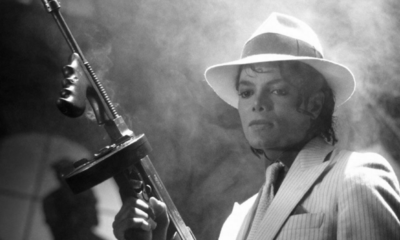

‘Blue Gangsta’ and Michael Jackson’s Fascination with America’s 20th Century Underbelly
Below is a chapter from my book Michael Jackson: Songs & Stories From The Vault, revised for this article. The full book...


Michael Jackson Meets America in Invincible Album Outtake ‘A Place With No Name’
Below is a chapter from my book Michael Jackson: Songs & Stories From The Vault, revised for this article. The full book...

First Amendment Coalition to Support Sony and the Jackson Estate in Fake Songs Lawsuit
There has been yet another twist in the class action lawsuit filed by Californian consumer Vera Serova against Sony Music...

Californian Government Joins Fraud Lawsuit Against Sony Music and Jackson Estate
The California state government has officially joined a class action lawsuit against Michael Jackson’s estate and record company. In a...



Jamon Bull
August 28, 2013 at 7:34 am
You know…at face value I am excited about this as I love Timbaland’s production and I’m sure he’ll do a great job adding his own flavour to Michael’s unreleased material. But on the other hand, that doesn’t even matter in the slightest as you’re quite right when you say Michael never worked with him. No matter how funky the track sounds, no matter how good the production is, Chicago will never be a track I’ll be able to listen to and enjoy as an authentic Michael Jackson song. It’s going to be Tricky Stewart’s Slave to the Rhythm all over again.
Unreleased tracks should only ever be brought to greater level of completion by people that worked WITH Michael in the studio and can push his vision for the song, not some unrelated hot shot producer who the Estate thinks will make them money. But I’ve given up hoping for this kind of thing, it’s clear that authenticity and respect for MJ’s art is the last thing on The Estate’s mind. I just hope that they release the latest and fullest demo version of Chicago alongside Timbaland’s version, so we get to hear authentic Michael. But alas, this is not a courtesy they’ve paid MJ fans before. P.s. I’m guessing this might be the Bad demo Chicago 1945?
P.s. Let’s not forget that Timbaland said things like this about Michael…
“Michael lost it after he left Quincy. He coulda got it back.” (Contact Music, 2006).
Sam
August 28, 2013 at 10:07 am
I very much agree with you, especially the line:
“But I’ve given up hoping for this kind of thing, it’s clear that authenticity and respect for MJ’s art is the last thing on The Estate’s mind.”
We can’t really do much about this. Many fans including me would prefer untouched material. And if it HAS to be touched, at least bring in the producers who actually worked on those specific songs, who understand MJ’s vision a lot more than someone who never even worked with MJ.
I also wish that when The Estate make decisions like this, to rework MJ’s original songs, a bonus CD is obligated to include ALL the ORIGINAL songs.
Sam
August 28, 2013 at 10:10 am
I forgot to add that Timbo’s statement regarding MJ had “lost it”, I can’t believe how a producer like him could say that. Did he even listen to Dangerous and History? Some of the greatest and strongest songs ever recorded are on History.
He probably didn’t even listen to it properly.
Putting negative things aside, I pretty much can’t wait to hear his work though. I loved what he did with JT’s 20/20 and some other earlier stuff, there’s no way he will make something that doesn’t sound good.
But then again, if it includes MJ’s vocals, it almost can’t not sound good.
jason rodgers
August 28, 2013 at 11:25 am
I disagree,to me i don’t really care who works on MJs unreleased,im personally excited at the prospect of Timbalands involvement,he should have been on board for the Invincible album,i think what would keep fans happier is to hear the original songs untouched for example Behind the mask or Hollywood tonight,thats where i believe the Estate have failed………to be perfectly honest Michael got in the way of alot of his music in the later years…..i cant wait for this project to surface.
Ebony Bonsai
August 28, 2013 at 11:47 am
AAAAAAAAAAHHHHHHHHHHH IM JUMPING AND EXPLODING IN JOY!!! I’M SO EXCITED!!!!!!!!!!
James Alay
August 28, 2013 at 1:14 pm
Excellent news! With LA Reid lining-up top-tier support, they might actually be able to produce a proper hit single – something they’ve yet to do since his passing.
PasMater
August 28, 2013 at 1:52 pm
1. Why Timbaland (he never even met MJ)?
2. Why Timbaland working on Chicago (song MJ was working on with Rodney Jerkins)? Rodney Jerkins should be the one finishing this song because he knows MJ and he knows what MJ wanted to do with that song. This will be “Hollywood Tonight” all over again!
PasMater
August 28, 2013 at 2:24 pm
It’s possible that the Estate doesn’t even know about Rodney Jerkins’ version of the song from 2000 Invincible sessions, because they are ignorant as always (Cascio tracks, Paul Anka co-writing This Is It…).
Maybe they found Chicago (1985 Demo) while working on Bad25, they thought that it is the latest version of the song and decided to give it to Tim to produce it for the new album.
That makes more sense to me knowing how ignorant the Estate is.
Sandy
August 28, 2013 at 3:50 pm
Well if the Estate didn’t know about Rodney Jenkins involvement with Michael before, they sure do now if they are web savvy.. If most of MJ’s stuff is almost complete, then the people who were working on them with Michael should step in and finish it in the way that Michael wanted. I loved listening to “Slave to the Rhythm” that was leaked onto the internet but I am ashamed that someone would do this! Obviously it was someone in the “mj camp”.
smooth
August 28, 2013 at 5:54 pm
Chicago was supposed to be on bad 25 / Rodney jerkins only has 7 completed songs from invincible sony hold all rights reguarding mj music until 2014
mksmurf
August 28, 2013 at 8:28 pm
Very sad to hear about this, Rodney Jerkins is denied…!!!
:””(
onedharma
August 29, 2013 at 4:48 pm
Great NEWS CANT wait for MODERN FRESH MICHAEL JACKSON MUSIC.
And Timbaland is the man to carry it out.
Catherine M Gross
August 31, 2013 at 8:40 pm
Then it will no longer be Michael Jackson music…
TheresaB
August 31, 2013 at 12:30 pm
I am not sure how I feel about this. Each time I get excited about new Michael music, it seems there are always people in the fan community ready to criticize every effort to the point it can spoil the enjoyment and excitement. The comments here show some of the same expressions of uncertainty. All I want is more Michael music and please make it good. I just want Michael to have some hits out of all that wonderful material he left behind. I want hear it played all over the radio, online, in the clubs and downloaded on iTunes. Is that really too much to ask that Michael be in the media for current successful music rather than all these damn court cases or family shenanigans taking the focus off the music (ie. Bad 25 release?)
Catherine M Gross
August 31, 2013 at 8:44 pm
I want the same thing… I just don’t want the flavor of Michael Jackson to change. If thats the case, there are a multitude of people who try to imitate Micheal’s voice… Let then sing it, just listen to them. I just don’t see why a scalpel has to be taken to Michael’s music. Finish it, but don take the MJ flavor away.
Catherine M Gross
August 31, 2013 at 8:37 pm
I feel cheated. I want to hear Michael…not anyone else. I am telling you now I am not going to buy that album. Are they actually saying they want this guy to fake Michael’s voice? That takes my spirit away…
Catherine M Gross
August 31, 2013 at 10:09 pm
Know what Guys? I have been thinking about this, and once you make Michael like everyone else the fantasy and the mystery will be gone. All the people who are MJ Tribute Artist will be pointless. The spirit that makes people want to be like him is who Michael Jackson is. However, when you try to make him like everyday people…you will actually lose Michael. I understand wanting to have a legacy, but if your legacy is that you killeds the spirit of Michael Jackson…forget about any accolades. No doubt there will be people who appreciate it, but half of the entire globe will not. We want Michael.
Qbee
September 1, 2013 at 5:24 am
No one stated they are faking Michael voice. I don’t know here you got that from? they are working on original MJ tracks and vocals. Unless I missed something. Can you quote where is was mentioned anyone was faking MJ vocals. I don’t see it .
Damien Shields
September 1, 2013 at 5:34 am
There’s no vocal faking going on. Don’t worry. Not sure where that concern comes from? Certainly not Timbaland, and I definitely didn’t suggest it. Like you said it’s MJ’s original vocals and Timbaland’s musical embellishments.
PasMater
September 2, 2013 at 3:40 pm
That is 100% correct when he is talking about Chicago (1945), but who knows what are the other songs he’s working on. Maybe he’s working on Burn Tonight and Black Widow too and everyone knows that is not MJ. We should all wait and see the tracklist, we all know the names of Cascio songs.. and when we see the tracklist we’ll know if it is MJ or not.
Esha
September 2, 2013 at 11:44 pm
I’m excited to hear his take wirh MJ’s music. Timbaland did meet michael but he never worked with him. I like how timbaland produces music so MJ,just might have a hit on this new album MJ will always be MJ. His Legacy is already solified in history. So no matter what ill love this music he produces just cause its MJ 🙂
la bla
April 27, 2014 at 7:03 am
obviously like your website but you have to take a look at the spelling on quite a few of your posts. A number of them are rife with spelling problems and I to find it very bothersome to inform the reality on the other hand I’ll definitely come again again.
click here
July 10, 2014 at 4:59 pm
MJ is definitely the king. When i listen to his songs i feel as he is still alive. For sure one of the most significant pop music stars ever!
air purifier hepa fan
October 17, 2014 at 1:39 pm
Greate post. Keep writing such kind of info on your
page. Im really impressed by your site.
Hi there, You have done an incredible job. I’ll certainly digg
it and for my part suggest to my friends. I am confident they will be benefited from this site.